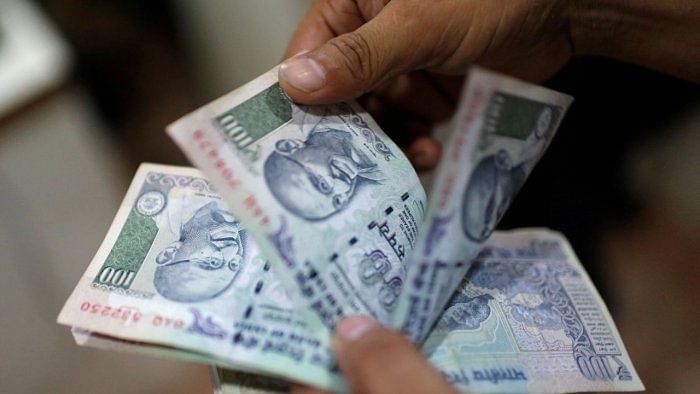
When sentiments about future inflation are on the higher side, households change their savings portfolio with respect to bank deposits, according to a working paper released by the Reserve Bank of India (RBI) on Tuesday.
Inflation expectations play a vital role in regulating households' consumption behaviour and consequent savings, said the paper titled 'Taking Cognisance of Households' Inflation Expectations in India'.
The paper is authored by Devendra Pratap Singh, Aditya Mishra and Purnima Shaw of the RBI. The findings of the paper are of the authors and not that of the RBI.
"We find that an increase in the households' inflation expectations impacts their savings in debt-based instruments, like bank term deposits, negatively; thus, indicating their reduced preference for bank term deposits when they expect rising inflation," the authors wrote in the paper.
Especially in the case of a developing economy, it is desirable for households to save in financial instruments like debt or equity, which can be utilised further into production enhancing activities, the paper said.
However, considering the still nascent stage of development of corporate bond markets and low awareness of equity markets; the financial instrument accessible for most Indian households is bank deposits.
If households expect inflation to pick up in the medium term and they suspect low returns due to low real interest rates, it may be preferable for them to invest in commodities like precious metals, jewellery, etc., than saving in term deposits, it said.
The authors said that similar to India, inflation expectations are biased and not efficient in other countries too, like the US, England, Japan, New Zealand, South Africa, Czech Republic, Philippines and Russia.
"This indicates that inflation expectations of Indian households are similar in nature to those of other developed and emerging economies, except for the relatively higher bias than in other economies, barring Russia," the paper said.
According to the authors, inflation expectations in India have been sticky as households take the time in trusting that a relatively low inflation era is here to stay.
Quantitative inflation expectations in India are formed based on the households' experiences of food and fuel inflation, they noted.
Changes in inflation expectations do not necessarily reflect the volatility of any particular food item; rather various food items, irrespective of their weight in the Consumer Price Index basket, influence the households' sentiments at various time points due to their weightage in the households' consumption baskets, the authors said.
The paper said that different factors influence inflation expectations of households during different time periods, depending on the price movement in specific items.
"A sudden price shock in any item may result in it having a disproportionate influence on households' inflation perception and future expectations," it said.
Further, huge differences exist between the sentiments of respondents across the cities, it said adding that in such a scenario, forecasting inflation using inflation expectations of households poses several challenges.
Check out latest videos from DH: